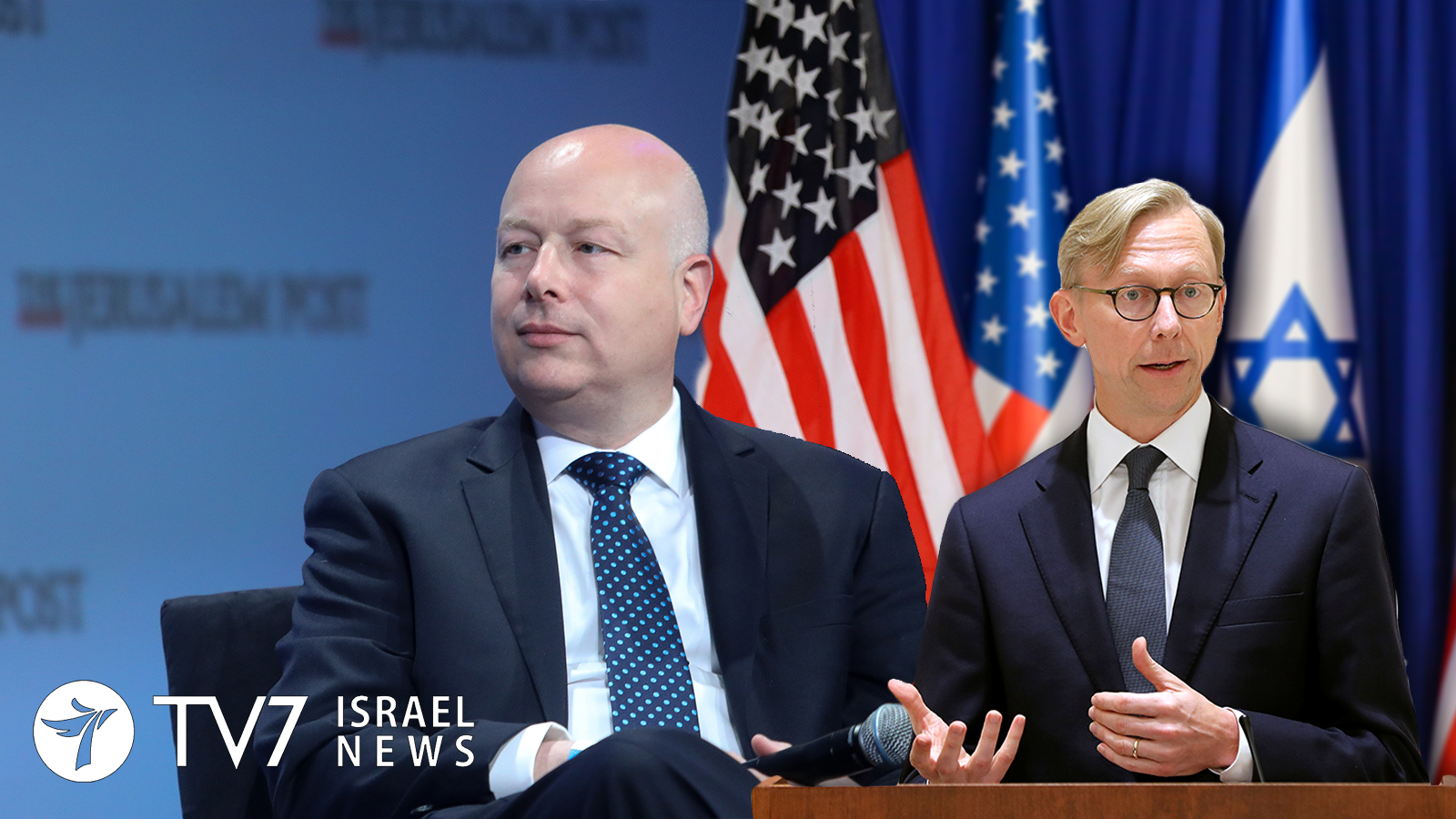U.S. Mideast peace envoy Jason Greenblatt and Special Representative for Iran Brian Hook co-authored an op-ed piece published by Fox News, in which they wrote that a comprehensive Israeli-Palestinian peace treaty “would be Iran’s worst nightmare,” that would also “help to bring regional stability and prevent Iranian terror.” The two senior Trump administration officials argued that “The Iranian regime has exploited the Israeli-Palestinian conflict for decades – profiting from the chaos, violence, and ineffective stopgaps to advance its malign activities and influence in the region.”
The article comes amid heightened US-Iran tensions in the Persian Gulf, as Senior Presidential Advisor Jared Kushner leads a delegation including Greenblatt and Hook to the Middle East. Trump’s son-in-law, who is also the principal architect of the White House peace initiative, will finalize details on the economic portion of the proposal and drum up enthusiasm by Arab states ahead of the upcoming summit Camp David where the political section is due to be unveiled.
The authors slammed Ayatollah Ali Khameini for holding what they referred to as “warped vision for the Palestinian people” – “that offers nothing but increased violence, devastation and despair,” after Iran’s Supreme Leader said last week that the best way to counter Trump’s “Deal of the Century” peace plan was the “feeling of progress” the Palestinians have now that they’ve been given precision rockets with which to fight instead of the stones they threw “not many years ago.” Greenblatt and Hook touted that in contrast, “more than 300 government, private sector, and civil society leaders convened for the [U.S.-led] Peace to Prosperity workshop” in Bahrain last month, where “an entirely different and hopeful vision of peace and prosperity for the Palestinian people was presented,” generating what the authors described as “a renewed enthusiasm for improving the lives of Palestinians and bringing peace and opportunity to the region – which Iranian aggression can clearly never achieve.”
The article also pointed out that “Iran is deeply invested in seeing this conflict continue,” and “provides 100 million dollars annually in support to Palestinian terrorist groups, including Hamas, Palestine Islamic Jihad, and the Popular Front for the Liberation of Palestine-General Command” – stressing that “None of these funds to go humanitarian relief.” They wrote, “These terrorist groups have enabled numerous deadly attacks originating from Gaza, the West Bank/Judea Samaria, Syria and Lebanon – including attacks against Israelis, Egyptian security forces in the Sinai Peninsula and even American citizens,” asserting that “While the Iranian regime’s support for Palestinian terrorist groups furthers its own strategic interests and directly threatens Israel and other Arab countries” that “it comes at a deep cost to the Palestinians’ security and economic wellbeing.”
According to the Mideast envoys, “As the Iranian regime prioritizes funding for Palestinian terror groups,” especially it’s terrorist partnerships with Hamas and Palestine Islamic Jihad, Gaza residents are forced to suffer resulting shortages of power, medical care and jobs “and often even used as human shields.”
Greenblatt and Hook said the Bahrain conference “also underlined the stark contrast between this vision of a hopeful and prosperous future that we seek and the one mired in conflict and violence that the Iranian regime is working harder than ever to promote.” They wrote that participants “clearly rejected Iran’s vision and embraced a future of hope and prosperity,” adding that “They began a new conversation in the Arab world about a future for the Israelis and Palestinians that could be transformative – with stability, security and exciting opportunities for prosperity.” “The Iranian regime’s regional aggression,” the authors thus contended, “has brought the Arab nations and Israel together to an unprecedented degree, creating cooperation that can ultimately help advance diplomatic progress in other areas, including peace efforts between Israel and the Palestinians.”
Moreover, they stated that “The Israeli-Palestinian conflict is no longer – if it ever was – the core conflict of the region” citing a recent comment by Bahrain’s Foreign Minister Khalid al Khalifa, “If it wasn’t for Iran being present – Iranian soldiers, money, support for Hamas & jihadis that take control of Gaza – we’d have been much closer to achieving a better peace between Palestinians & Israelis.” They went on to insist that “The Iranian regime is the core irritant that poses a direct threat to both regional and international security,” stressing that “The continuation of the Israeli-Palestinian conflict benefits the Iranian regime’s expansionist ambitions. Terrorism and malevolent voyeurism are Iran’s foreign policy – dangerous follies that require the region’s full attention.”
In summary, the op-ed emphasized that “Resolving the conflict will accelerate and facilitate the progress between Israel and the region that will also benefit the Palestinians,” and called on the international community to be “united against Iran’s illicit business and terror activities,” and “rooting for the Trump administration’s peace vision and the future generations of Israelis and Palestinians who have suffered from this decades-old conflict.”
